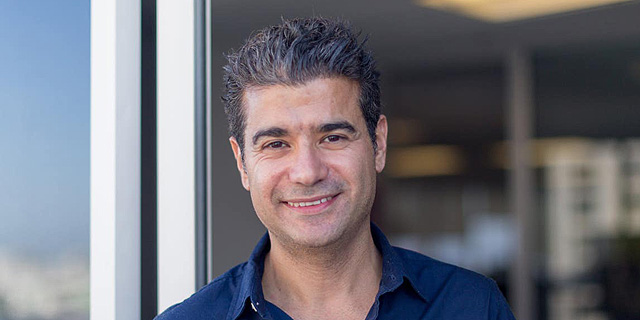
Mind The Tech TLV
“Some companies had to totally reinvent themselves amid the pandemic,” says WalkMe founder
Rafael Sweary said he’s concerned about the long-term economic impact of Covid-19, but remains optimistic, saying “we’ve overcome far worse”
Elihay Vidal | 20:53, 09.12.20
“If prior to the pandemic breakout we were primarily concerned with the wellbeing of our employees, today we take a broader approach, examining our entire surroundings. We care, for instance about the fate of our suppliers. We are engaged members of our community and for that reason, we care about other communities too,” said Rafael Sweary, the founder and president of Israeli website usability company WalkMe Inc. in an interview during Calcalist’s Mind The Tech TLV 2020 conference. “Because of that we didn’t cancel our employees’ meal cards or reduce their travel expenses since we believe it supports the wider economy. My chief concern at the moment is what will happen to the economy in the long term. I’m not worried specifically about the tech sector. Humankind as a whole, as well as us here in Israel, have overcome far worse things in the past, so I am optimistic we will overcome the Covid-19 crisis too,” Sweary said.
WalkMe develops platforms that aid companies in carrying out digital transformations, enabling them to maximize their technological systems both from the user side, with guidelines and training, and on the analytics side, providing management with insights on what works and what doesn’t, to assist in their rapid transitions to digital platforms.
According to Sweary, with the outbreak of the pandemic, many organizations were forced to transition quickly to work from home, which saw a sharp increase in demand for the company’s services, putting pressure on their site and on their employees. “During the second wave, new employees were coming on to companies, and the problem of how to onboard a worker, when no one is in the office to receive them arose. We witnessed some companies that had to totally reinvent themselves. Companies that provide farmers with agricultural equipment, for example, whose representatives had traditionally physically delivered the products, had to — within weeks— set up an online trade and distribution center. Since it was a worldwide phenomenon, things moved very quickly. A transformation like that would normally take a company three or four years to complete, because the clients would be unprepared for such a shift, expecting in-person service.”
Asked which parameters were most important for defining a company’s growth, Sweary said that for SaaS companies there were four essential factors: growth in activity “with the winning number being 40% growth a year, which places you under the definition of a growing tech company. The second factor is the activity vis-a-vis the clients: are they growing, are they staying with or leaving the company, and to what degree are they using your services? The third parameter is efficiency — how much is it costing you to grow? And the final thing is cash flow management. The pandemic introduced a lot of uncertainty so the focus on cash flow is more important than it used to be,” Sweary concluded.